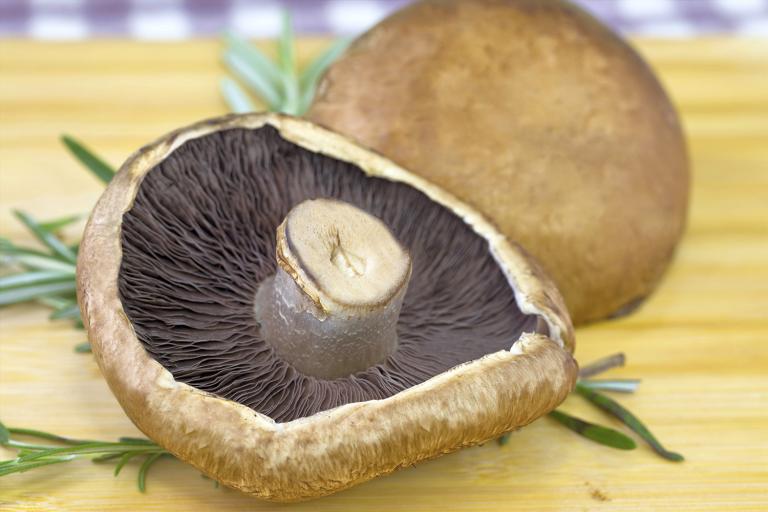Not many years ago, buying mushrooms at your market meant one kind—“button.”
Those little white mushrooms are still there but are now surrounded by varieties you may not recognize.
Crimini, maitake, morel, oyster, portobello, and shiitake are among the flavorful specialty mushrooms you’re likely to find in many produce departments these days.
Mushroom Tips
-
How to Choose
In general, choose dry, firm mushrooms. The exceptions include shiitake caps and morels, which have a soft, spongy texture. Give more expensive varieties the “sniff test”—fresh ones smell woodsy but never sharp or moldy.
Handle fresh mushrooms gently, placing them carefully in your cart, on top of heavier items. If you buy dried mushrooms (sold in small plastic packs), look for packages with large pieces and no dust or crumbled mushrooms.
-
How to Store
Dampness makes mushrooms soft and slimy. Before you store them:
- Carefully blot away any moisture with paper toweling, and then refrigerate them in a paper bag.
- Don’t use plastic bags, which trap moisture and contribute to spoiling.
Most mushrooms can be kept this way for 5 to 7 days, or:
- Up to 10 days for maitakes and portobellos
- Up to 14 days for morels and shiitakes.
-
How to Prepare
-
Fresh Mushrooms
- Wipe mushrooms clean with a damp paper towel.
- If they’re very dirty, rinse them under cold water quickly, but dry them well, since damp mushrooms quickly get soft and spongy.
- Check the ends of any stems. If they appear dried out, remove a thin slice with a sharp knife.
- For shiitakes and portobellos, remove the whole stem since it’s chewy and woody.
- Wipe mushrooms clean with a damp paper towel.
-
Dried Mushrooms
Dried mushrooms can be rehydrated in about 15 minutes:
- Place them in a small bowl and cover with hot tap water.
- Use when they are soft but still firm, transferring them with a fork to a cutting board.
- The remaining liquid can go into soups and stews.
-
Health Benefits
Low in calories, salt, and fat, mushrooms are a good source of minerals, especially potassium, and vitamins, particularly B vitamins. And they have no cholesterol or other fat.
If you’re still hesitant about foraging among the new fungi, consider that many varieties of mushrooms have long been prized for their healing properties.
-
Heart Health and Immunity
Research on the shiitake, a traditional mainstay of Chinese medicine, has found it useful for high blood pressure and elevated cholesterol; it also strengthens the immune system.
-
Antiviral Effects
Maitake may have anticancer and antiviral effects, and it may even reduce blood sugar.
By fighting free radicals that compromise the immune system, “medicinal” mushrooms may protect you from viral and bacterial infections.
-
High in Protein
Mushrooms are a better source of protein than are many other vegetables.
The protein in mushrooms is superior to many vegan sources because of their essential amino acid content.
For more information about mushrooms as supplements, consult a healthcare practitioner trained in complementary medicine.

